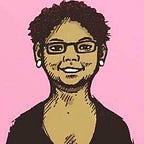15 steps aid organisations can take to be Proud during Pride Month
It’s the second day of Pride month and a weekend, and already, I have seen countless ‘Happy Pride Month’ posts on LinkedIn from aid organisations. I also know that aid organisations are generally not yet working in genuinely inclusive ways of people with diverse SOGIESC — let alone in transformative ways. I decided to make a list of things that aid organisations should be able to be proud of, and I hope that this helps them reflect on what they can do to take pride in themselves and in supporting the diverse SOGIESC communities.
- Pride in your well-researched, diverse SOGIESC organisational position.
- Pride in focusing on disrupting and eliminating discriminating social norms and ideologies rather than just including identities in a long list of vulnerable groups.
- Pride in a diverse SOGIESC policy that is well-researched, with input from diverse SOGIESC workers, CSOs and communities and aims to transform the social norms and ideologies that create harm.
- Pride in how you have ensured that all your policies (such as your gender, disability, and social inclusion policies) align with your diverse SOGIESC policy and position paper.
- Pride in investing in a diverse SOGIESC inclusion advisor for your organisation and all programmes and projects.
- Pride in your well-researched approach and strategy to working in countries with restrictive legal contexts for people with diverse SOGIESC — and that research is undertaken in collaboration with diverse SOGIESC specialists.
- Pride in how well you have reviewed and adapted your existing gender tools and needs assessments to ensure they are inclusive of the diversity of gender and are not heteronormative, cisnormative, endosexist or gender binary.
- Pride in your ongoing relationships with diverse SOGIESC civil society organisations and informal community groups where you work and outside of specific projects.
- Pride in developing a relationship with CSOs that is about mutual accountability. Rather than the CSO needing to only be accountable to your organisation and donors, you have accountability to them in ensuring your policies, strategies, frameworks, tools, and ways of working are inclusive.
- Pride in your ongoing professional development agenda that provides consistent learning on SOGIESC inclusive practice for your employees.
- Pride in providing ongoing diverse SOGIESC professional development to your non-SOGIESC specific CSO partnerships, like OPDs and feminist partners.
- Pride in the community engagement and co-design processes, which include people with diverse SOGIESC and their many different lived experiences, such as the lived experience of participating in your previous or existing programmes. Lived experience in accessing or being unable to access humanitarian response in a crisis. Experience in navigating social protection while also being a woman, a person with a disability, a refugee, or a migrant worker, and all the other intersecting identities while having a diverse sexuality, gender or body.
- Pride in embedding diverse SOGIESC inclusion in projects in technical areas other than protection. Protection is important, but so is WASH, shelter, livelihoods, food security, education, camp coordination etc.
- Pride in how dedicated you are to mainstream diverse SOGIESC inclusion and how you only implement targeted projects in collaboration with CSOs and diverse SOGIESC community members due to their identified protection issues, not your assumptions.
- Pride in when you post on social media about pride month, you know that you are making diverse SOGIESC inclusion a priority and that you and your organisation are embedding it in your everyday practice.
To learn more about Community Powered Responses, check out the Community Powered Responses website.
